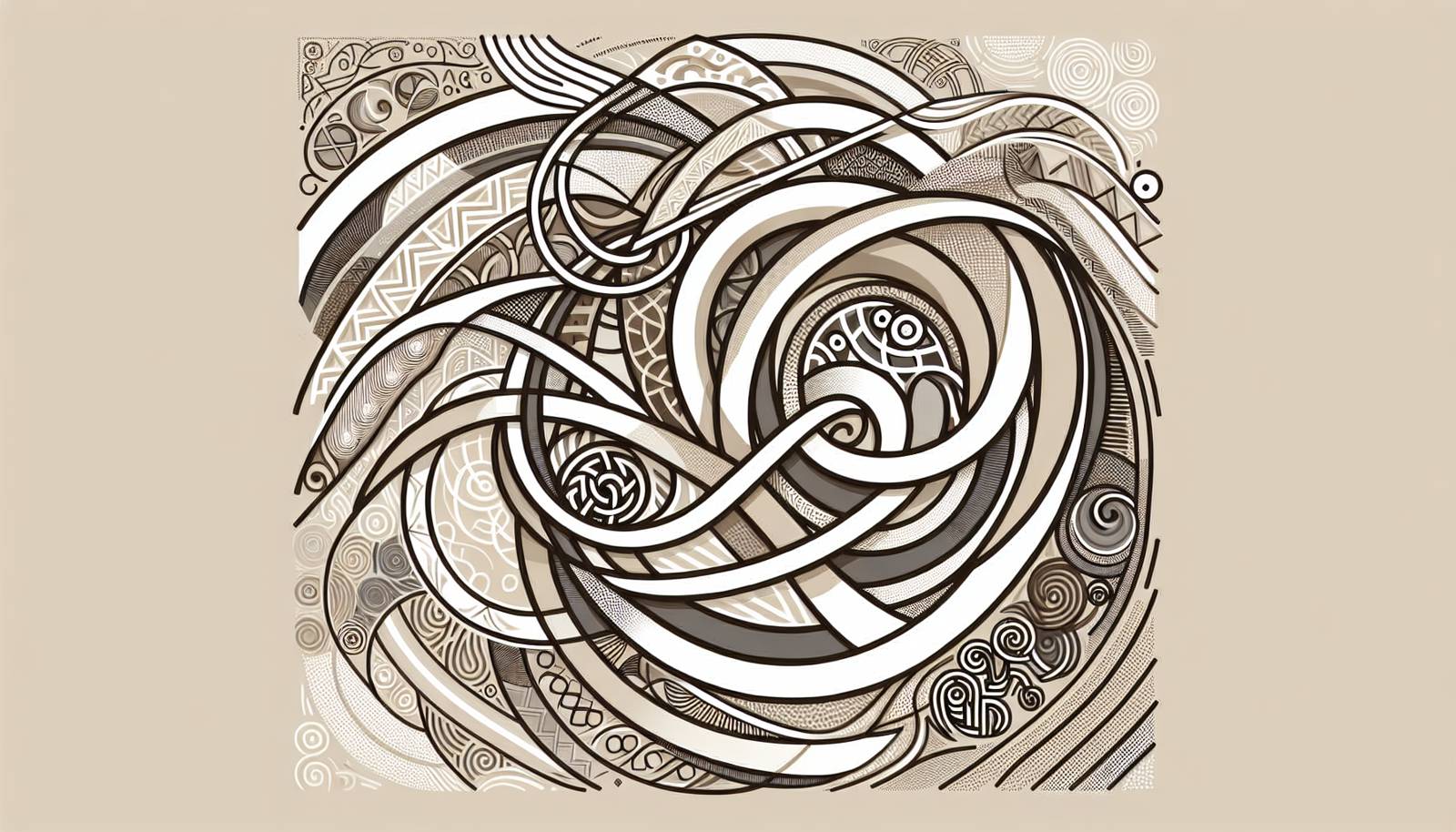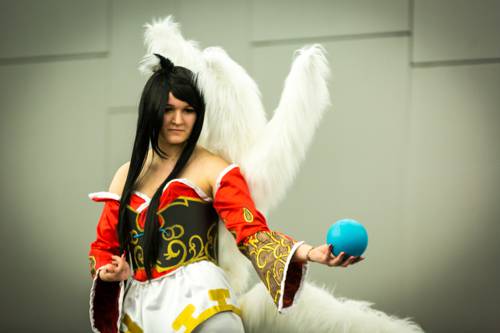
FAQ About The Role of Cosplay in Cultural Exchange and Community Building

What is cosplay?
Cosplay is a performance art where participants dress up as characters from films, television series, books, comics, video games, and more, often matching not only the characters' appearance but also their behavior and mannerisms. It combines the words 'costume' and 'play' and is a significant aspect of fan culture.

How does cosplay contribute to cultural exchange?
Cosplay facilitates cultural exchange by allowing individuals from different backgrounds to share and celebrate various cultural assets, such as anime, comic books, or video games, often introducing audiences to new cultures. Participants often learn about the origins of their chosen characters and the cultural context behind them, which can lead to a greater understanding and appreciation of diverse cultural traditions.

What role does cosplay play in community building?
Cosplay fosters community building by bringing people with similar interests together, forming communities both online and offline. These communities are spaces where enthusiasts can share experiences, techniques, and support each other. Events like conventions and cosplay meets also provide opportunities for social interaction, networking, and the development of friendships.

Are there specific events dedicated to cosplay?
Yes, there are many events dedicated to cosplay, such as comic and pop culture conventions. Some of the largest are Comic-Con International in San Diego, Dragon Con in Atlanta, and Tokyo Comic Con in Japan. These events not only focus on cosplay but also host panels, workshops, and competitions that enrich the community experience.

How has social media impacted cosplay?
Social media has significantly impacted cosplay by providing a platform for cosplayers to showcase their work, connect with other fans, and share resources and ideas. Platforms like Instagram, TikTok, and Facebook groups are popular among cosplayers for their visual and community-oriented features. This has helped expand the reach of cosplay and foster communities across the globe.

What are some challenges faced by the cosplay community?
The cosplay community faces challenges such as harassment, gatekeeping, and issues of cultural appropriation. While mostly supportive, there can be divisions over what constitutes 'true' cosplay or unwelcome behavior at events. Awareness and inclusivity efforts are ongoing to ensure a safe and welcoming environment for all participants.

Can cosplay be considered a form of art?
Yes, cosplay is often regarded as a form of art due to the creativity, craftsmanship, and performance aspects involved. Creating a cosplay outfit requires skills in sewing, designing, makeup, props creation, and more, while embodying a character involves acting and presenting oneself in a way that represents the character's essence.

Is there an economic impact associated with cosplay?
Cosplay has a notable economic impact, influencing various industries such as fashion, material supplies, and entertainment. Cosplayers often spend on costumes, accessories, and travel for events, while events themselves drive demand for related services and products. Additionally, skilled cosplayers may turn their craft into a business, providing services like costume design and tutorials.

What are some popular cosplay genres?
Popular cosplay genres include anime, manga, superhero comics, video games, and films. Within these genres, characters from series like 'Naruto,' Marvel and DC Comics, 'Star Wars,' and 'The Legend of Zelda' are frequently chosen for cosplay. Cosplayers often choose characters that resonate personally with them or are widely recognized in fan communities.

How does cosplay intersect with identity and self-expression?
Cosplay allows individuals to express facets of their identity by choosing characters that reflect their personal interests, values, or aspirations. It provides a space to explore different aspects of oneself and communicate these through costume and performance. This aspect of self-expression is often empowering, allowing people to embody traits they admire or feel connected to.

What is the historical origin of cosplay?
While dressing in costumes has a long history, the term 'cosplay' was coined in Japan in the 1980s by Nobuyuki Takahashi after visiting a science fiction convention in the United States. The practice itself became popular worldwide as Japanese anime and manga gained international popularity, blending Western and Japanese cultural practices in fan conventions.

How do cosplayers choose which character to portray?
Cosplayers often choose characters based on personal affinity, the cultural impact, or visual appeal. Some are drawn to characters they admire or relate to personally, while others might select a character based on popularity or to challenge themselves with complex designs. The decision can also be influenced by current trends and releases in media.

What are the ethical considerations in cosplay regarding cultural appropriation?
Cosplayers should be mindful of cultural appropriation, which occurs when elements of one culture are used disrespectfully or out of context, particularly by individuals from a more dominant culture. This can be mitigated by researching the cultural significance of symbols or costumes, understanding and respecting their origins, and engaging in open dialogue within the community.

Can anyone participate in cosplay or is it limited to certain groups?
Cosplay is generally inclusive and open to anyone regardless of age, gender, race, or body type. The community champions self-expression and creativity, encouraging diversity and inclusivity. While there can be niche communities within cosplay, its overarching ethos is that anyone who loves a character or story can participate.

How does cosplay influence perceptions of cultural icons or stories?
Through cosplay, perceptions of cultural icons or stories can be broadened as cosplayers reinterpret characters, bringing them into new cultural and social contexts. This reinterpretation allows for cross-cultural dialogues and can lead to increased appreciation and understanding of the narratives from which these characters originate.

What is a cosplay competition?
A cosplay competition is an event where cosplayers showcase their costumes and performances in front of judges and an audience. These competitions, often held at conventions, evaluate contestants based on craftsmanship, originality, and performance, offering awards in different categories. Competitions provide challenges and recognition, encouraging skills development and creativity among participants.

How has cosplay changed over the years?
Cosplay has evolved from a niche hobby into a global phenomenon, with advancements in technology influencing costume design and materials used. The community has also become more diverse, with increased awareness and efforts towards inclusivity. Moreover, the sharing of cosplay on digital platforms has expanded its reach and transformed it into a professional endeavor for some.

What are some common misconceptions about cosplay?
Common misconceptions about cosplay include the belief that it is only for children or fandom enthusiasts and that it is just about wearing costumes. In reality, cosplay involves significant creative and performance elements and is widely practiced by people of various ages and backgrounds as a serious hobby or profession.

What is the difference between cosplay and wearing a costume?
While both involve dressing up, cosplay is distinct in that it involves not only replicating a character's appearance but also their personality and behavior. Cosplayers often engage in role-play or performance art, striving for accuracy and often crafting their own costumes, whereas wearing a costume might be more casual and typically occurs during events like Halloween.

How can newcomers get involved in cosplay?
Newcomers can get involved in cosplay by attending local conventions, joining online cosplay communities, and starting with simple costume projects. Many resources, such as tutorials and guides, are available online to help beginners learn the basics of costume making and character portrayal. Engaging with the community can provide valuable support and motivation.
